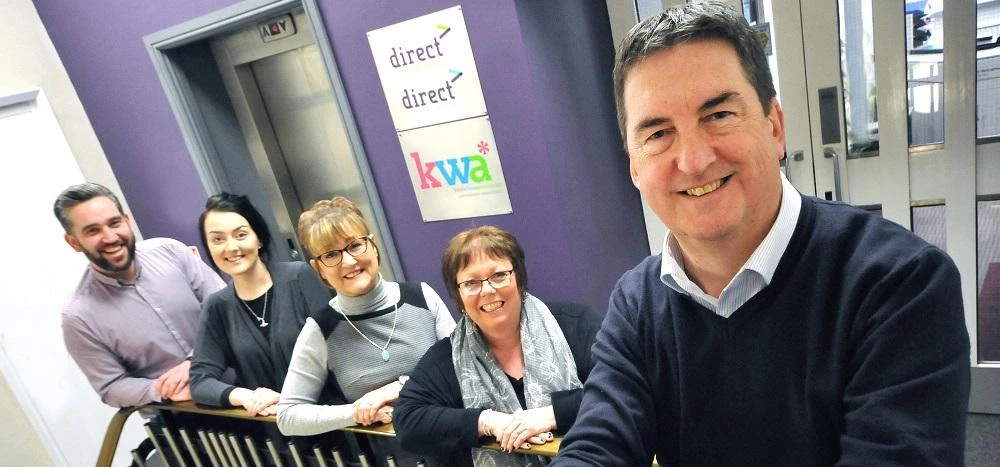
Partner Article
Northern Powerhouse can fast-track business growth
By Ken Wilson, chairman of Ken Wilson & Associates (KWA)
The Northern Powerhouse is high on the political and economic agenda and a source of great debate among local businesses. Essentially it’s a Government initiative to make the North of England more economically productive by improving connectivity between its main cities.
Supporters of the scheme claim it’s a once-in-a-generation opportunity to drive investment and jobs into the North East. Critics, on the other hand, say it’s a pointless mix of hot air and political posturing in a bid to woo Northern voters.
The reality probably lies somewhere in between these two polar opposites. If the Northern Powerhouse works, it will almost certainly create much-needed jobs and investment, redress economic imbalances between the North and South of the country and help to reduce chronically high unemployment levels in the North East.
There is a great deal of uncertainty about how it will work in practice, though. Who will hold key decision-making powers and how will the North East ensure that it doesn’t lose out to bigger centres of influence such as Manchester and Leeds?
There’s also the petty political in-fighting which threatens to undermine the whole project. The Commons Business, Innovation and Skills Committee, which is chaired by Hartlepool Labour MP Iain Wright, has launched an inquiry to discover whether the Northern Powerhouse is, after all, a policy underpinned by pointless rhetoric and spin.
The other key element to this debate is the proposed devolution deal, which would transfer a host of decision-making powers from Westminster to the North East. However, this is in jeopardy after Gateshead Council rejected the idea and six others refused to sign up until central Government granted further concessions – meaning a final decision on devolution has been pushed back to May.
Devolution is an important part of the Northern Powerhouse because it would, in theory, give the region more influence over its social and economic fortunes. There’s significant opposition to various strings attached to the deal, however, particularly the Government’s insistence that there must be an elected mayor in place before any additional powers are granted.
It’s unclear, though, how much influence and decision-making power that person will have. Will he or she have overall responsibility for green-lighting key investment, skills and infrastructure projects, for example?
Consensus on devolution is vital because Chancellor George Osborne is unwilling to back down on his chosen mayor-led model. If it doesn’t go ahead, the North East could lose out to other regions – Manchester is already ahead of the game – that do have this structure in place.
Assuming that an agreement can be reached, it’s vital that the elected mayor has an industry background and is well attuned to the needs of local businesses. Devolution must be driven by the requirements of industry. Only then will the North East have the power to influence its own economic destiny and shape a strong Northern Powerhouse that can draw in investment from around the globe.
If this happens, companies have a much better chance of creating the jobs, skills and wealth that this region so badly needs.
For further information about KWA, call 0191 232 2330, visit http://www.kwa.co.uk/ or e-mail enquiries@kwa.co.uk.
This was posted in Bdaily's Members' News section by Ken Wilson & Associates .
Enjoy the read? Get Bdaily delivered.
Sign up to receive our daily bulletin, sent to your inbox, for free.








 Raising the bar to boost North East growth
Raising the bar to boost North East growth
 Navigating the messy middle of business growth
Navigating the messy middle of business growth
 We must make it easier to hire young people
We must make it easier to hire young people
 Why community-based care is key to NHS' future
Why community-based care is key to NHS' future
 Culture, confidence and creativity in the North East
Culture, confidence and creativity in the North East
 Putting in the groundwork to boost skills
Putting in the groundwork to boost skills
 £100,000 milestone drives forward STEM work
£100,000 milestone drives forward STEM work
 Restoring confidence for the economic road ahead
Restoring confidence for the economic road ahead
 Ready to scale? Buy-and-build offers opportunity
Ready to scale? Buy-and-build offers opportunity
 When will our regional economy grow?
When will our regional economy grow?
 Creating a thriving North East construction sector
Creating a thriving North East construction sector
 Why investors are still backing the North East
Why investors are still backing the North East